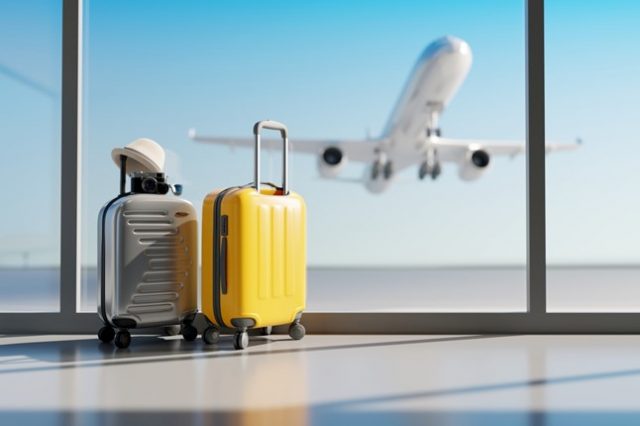Sheriza Reyan Mohammed-Ali understands that the COVID-19 pandemic has undeniably altered the landscape of the travel industry in profound ways, reshaping traveler preferences and expectations towards health, safety, flexibility, and personalized experiences. As the world gradually emerges from the shadow of the pandemic, these evolving preferences are influencing lodging choices, driving innovation, and compelling the hospitality sector to adapt to a new era of travel. This article from Sheriza Reyan Mohammed-Ali, an avid traveler himself, delves into the key factors shaping traveler decisions in the post-COVID-19 world and how the lodging industry is responding to these shifts.
Health and Safety Measures
In the immediate aftermath of the pandemic, health and safety understandably surged to the top of travelers’ priorities. While cleanliness has always been a consideration, the emphasis on health and safety protocols has reached unprecedented levels. Sheriza Reyan Mohammed-Ali believes that travelers now seek reassurance that lodging facilities are implementing enhanced cleaning and sanitation practices, social distancing measures, and contactless technologies.
Hotels, resorts, and alternative accommodation providers have responded by adopting stringent health and safety protocols, often exceeding local government guidelines. These measures include regular deep cleaning, the use of hospital-grade disinfectants, the installation of air purification systems, and the provision of hand sanitizing stations throughout properties. Sheriza Reyan Mohammed-Ali explains how many establishments have also embraced digital solutions to minimize contact, such as mobile check-in and check-out, digital room keys, and virtual concierge services.
Flexibility: The New Norm
The uncertainty brought about by the pandemic has made flexibility a critical factor in travel planning. Travelers are now more cautious and seek booking options that offer free cancellations, amendments, and comprehensive travel insurance coverages. The demand for flexible booking policies has pushed the hospitality industry to reconsider traditional rigid reservation and cancellation policies.
Sheriza Reyan Mohammed-Ali explains that many lodging providers have introduced more lenient change and cancellation policies to accommodate the need for flexibility. These policies allow travelers to make last-minute changes without incurring hefty fees, providing peace of mind in an unpredictable environment. Subscription-based travel models and longer-term stay discounts have also gained popularity, offering more flexibility and appealing to digital nomads and remote workers.
Personalized Experiences
The desire for personalized and unique travel experiences has intensified in the post-pandemic era. Sheriza Reyan Mohammed-Ali emphasizes that travelers are increasingly seeking out accommodations that offer a sense of place, authenticity, and personalized service. This shift is partly driven by the increased value placed on travel experiences after prolonged periods of lockdowns and restrictions.
Lodging providers are responding by curating more bespoke experiences and services tailored to individual preferences and interests. This can range from personalized room amenities and curated local experiences to special dietary menus and private tours. The emphasis is on creating memorable and immersive experiences that connect travelers more deeply with their destination.
Sustainability and Responsible Travel
Sustainability and responsible travel have also come to the forefront of travelers’ consciousness. The pandemic has heightened awareness of environmental issues and the impact of tourism on local communities. As a result, travelers are increasingly looking for lodging options that prioritize sustainability, from energy-efficient operations and waste reduction practices to support for local economies and preservation of cultural heritage.
The lodging industry is responding by integrating sustainable practices into their operations and marketing these efforts to attract eco-conscious travelers. This includes initiatives such as the use of renewable energy sources, reduction of single-use plastics, local sourcing of food and products, and programs that allow guests to participate in conservation efforts.
The Role of Technology
Technology plays a pivotal role in addressing the evolved preferences of post-COVID-19 travelers. From contactless services and automation to virtual reality (VR) tours and AI-driven personalization, technology is enabling the lodging industry to meet heightened expectations for health and safety, flexibility, and personalized experiences. Moreover, technology facilitates better communication and transparency between lodging providers and travelers, ensuring that guests are well-informed about the measures in place to protect their health and well-being.
Sheriza Reyan Mohammed-Ali understands that the evolution of traveler preferences in the post-COVID-19 era marks a significant shift in the travel industry. Health and safety, flexibility, personalized experiences, sustainability, and the integration of technology are now at the forefront of travelers’ decision-making processes. Lodging providers that adapt to these shifts prioritizing the well-being and individual needs of their guests, are poised to thrive in this new travel landscape. Sheriza Reyan Mohammed-Ali emphasizes that as the industry continues to navigate these changes, one thing is clear: the future of travel is not just about where people go but how they get there and the experiences they have along the way.








